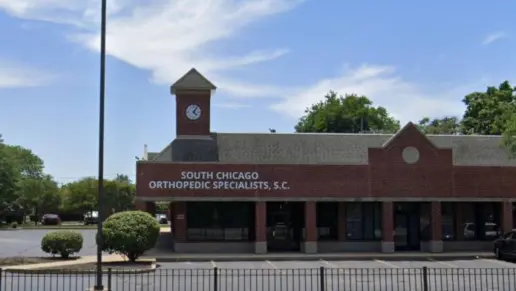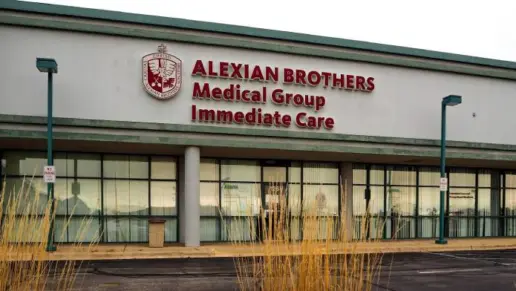TOXIC PROGRAM My husband was at PSI in 2019. Although he has maintained strict sobriety he was quite traumatized by the experience. His private details, which were revealed in the daily small group, were leaked out of PSI and it came back to him days later at an off-site ...
About Positive Sobriety Institute Alcohol & Drug Rehab Chicago
Located in Chicago, Illinois, the Positive Sobriety Institute is the first addiction treatment center in the US designed exclusively for professionals. They have a thorough knowledge of how high-functioning individuals struggle with addiction and structure their programs around providing discretion as well as highly effective solutions. The institute works with many insurance companies; however, they recommend contacting them directly to verify the specifics of your coverage.
Offering different treatment options, such as residential treatment, a partial hospitalization program (PHP) and intensive outpatient program (IOP), allows them to accommodate individuals pursuing therapy while still being able to fulfill some of their daily responsibilities. Evidence based interventions that are used include cognitive behavioral therapy (CBT), individual counseling and group therapy. The Positive Sobriety Institute also provides medically supervised detox services to help you safely navigate withdrawal during the first step of sustaining a life free from addiction.
More than just therapy, their programs focus on how to sustain long-term recovery with a higher success rate. Patients learn life skills and build tools for continued coping once they leave treatment.
Latest Reviews
Rehab Score
Gallery
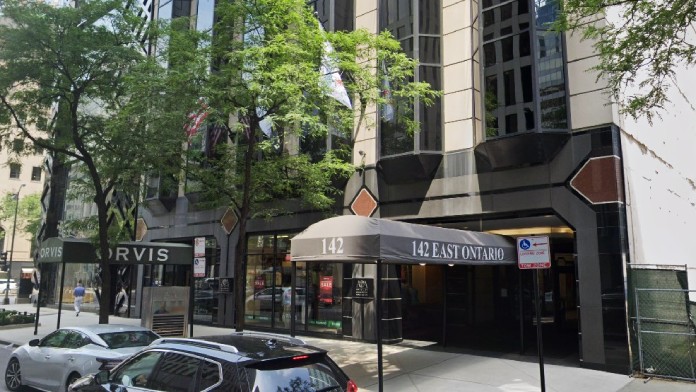


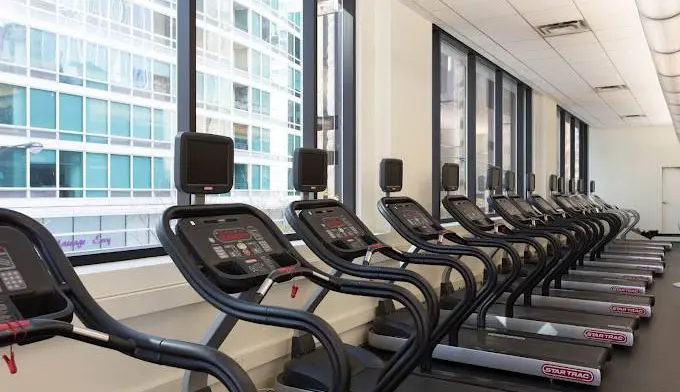
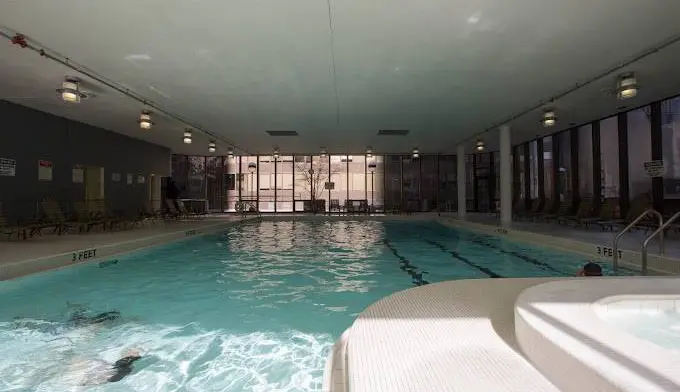

Location
Accepted Insurance
Other Forms of Payment
Private insurance refers to any kind of healthcare coverage that isn't from the state or federal government. This includes individual and family plans offered by an employer or purchased from the Insurance Marketplace. Every plan will have different requirements and out of pocket costs so be sure to get the full details before you start treatment.
Self-pay involves paying for treatment out of your own pocket. You can use savings or credit, get a personal loan, or receive help from family and friends to fund your treatment. If you don't have insurance or your insurance plan doesn't cover a specific program, self-pay can help ensure you still get the care you need.
Financial aid can take many forms. Centers may have grants or scholarships available to clients who meet eligibility requirements. Programs that receive SAMHSA grants may have financial aid available for those who need treatment as well. Grants and scholarships can help you pai for treatment without having to repay.
Medicare is a federal program that provides health insurance for those 65 and older. It also serves people under 65 with chronic and disabling health challenges. To use Medicare for addiction treatment you need to find a program that accepts Medicare and is in network with your plan. Out of pocket costs and preauthorization requirements vary, so always check with your provider.
Addiction Treatments
Levels of Care
Treatments
The goal of treatment for alcoholism is abstinence. Those with poor social support, poor motivation, or psychiatric disorders tend to relapse within a few years of treatment. For these people, success is measured by longer periods of abstinence, reduced use of alcohol, better health, and improved social functioning. Recovery and Maintenance are usually based on 12 step programs and AA meetings.
Drug rehab in Illinois is designed to help people recover from addiction to a number of substances. The length of each program and its intensity tend to vary, and the plan of care is based on your individual needs.
Society’s disapproval for alcohol and drug abuse finds no greater recipient for stigma than an addicted professional including physicians, pharmacists, lawyers, pilots, executives and others. Positive Sobriety Institute, based in Chicago, Illinois, treats these individuals and their specific addictions including any co-occurring issues such as mental health in a culturally-sensitive environment conducive to healing and recovery.
A combined mental health and substance abuse rehab has the staff and resources available to handle individuals with both mental health and substance abuse issues. It can be challenging to determine where a specific symptom stems from (a mental health issue or an issue related to substance abuse), so mental health and substance abuse professionals are helpful in detangling symptoms and keeping treatment on track.
Opioid rehabs specialize in supporting those recovering from opioid addiction. They treat those suffering from addiction to illegal opioids like heroin, as well as prescription drugs like oxycodone. These centers typically combine both physical as well as mental and emotional support to help stop addiction. Physical support often includes medical detox and subsequent medical support (including medication), and mental support includes in-depth therapy to address the underlying causes of addiction.
Programs

Clinical Services
CBT is a form of therapy utilized to treat a wide variety of mental and psychological disorders, including depression, anxiety disorders, addiction, chronic pain and eating disorders. CBT asserts that what we think about our lives and circumstances greatly influences our feelings and behavior. Negative or irrational beliefs lead to poor behavioral choices. CBT has been shown to help those with addictive disease more effectively recognize stressors, triggers and practice self-regulation and self-monitoring techniques.
Dialectical Behavior Therapy (DBT) is a modified form of Cognitive Behavioral Therapy (CBT), a treatment designed to help people understand and ultimately affect the relationship between their thoughts, feelings, and behaviors. DBT is often used for individuals who struggle with self-harm behaviors, such as self-mutilation (cutting) and suicidal thoughts, urges, or attempts. It has been proven clinically effective for those who struggle with out-of-control emotions and mental health illnesses like Borderline Personality Disorder.
Experiential therapy is a form of therapy in which clients are encouraged to surface and work through subconscious issues by engaging in real-time experiences. Experiential therapy departs from traditional talk therapy by involving the body, and having clients engage in activities, movements, and physical and emotional expression. This can involve role-play or using props (which can include other people). Experiential therapy can help people process trauma, memories, and emotion quickly, deeply, and in a lasting fashion, leading to substantial and impactful healing.
Research clearly demonstrates that recovery is far more successful and sustainable when loved ones like family members participate in rehab and substance abuse treatment. Recognizing that substance dependency is a family disease, Positive Sobriety Institute’s IOP dedicates time for family sessions. Family members are an important part of their treatment approach. They invite patients, families and referring treatment team members to contribute to the individual’s recovery plan.
Fitness therapy blends exercise with psychotherapy for a fun, inspiring, and effective way of treating addiction and other issues. By incorporating movement into counseling sessions, clients become more empowered, motivated, and goal-oriented, all while strengthening their bodies and becoming more flexible. Fitness Therapy is usually used to complement a course of treatment (inpatient or outpatient) to make it even more successful. Increasing the connection between a patient’s mind and body helps both with healing as well as in creating new, healthy habits.
Group therapy is an important, though often misunderstood, component of addiction treatment. Group therapy’s restorative effects emanate from the powerful social bonds that form through shared experience. Group therapy is a place to nurture healthy relationships, and to demonstrate respect, compassion and empathy for others. All are necessary for maintaining sobriety, and for embarking on a happy, healthy life with fulfilling relationships after treatment.
Hypnotherapy (aka guided hypnosis) can be used as a therapeutic modality to treat substance use, especially in terms of quitting smoking cigarettes (nicotine). Clinical hypnotherapists help clients turn their attention inward, accessing unconscious or subconscious material, and then make suggestions that are healthier for the individual. The process can help clients make deep, positive, and lasting changes, including ceasing addictive habits.
In individual therapy, a patient meets one-on-one with a trained psychologist or counselor. Therapy is a pivotal part of effective substance abuse treatment, as it often covers root causes of addiction, including challenges faced by the patient in their social, family, and work/school life.
Life skills trainings involve all the skills a person must have in order to function successfully in the world. These include time management, career guidance, money management, and effective communication. Truly successful addiction recovery is based on the ability to not only live substance-free, but to thrive. Life skills teaches the practical necessities of functioning in society, which sets clients up for success in life, and therefore sobriety.
Motivational interviewing strategically identifies what a patient values the most, and uses that as a catalyst for positive change. Motivational interviewing techniques were developed specifically for the treatment of substance use disorders. The technique involves using an empathic, nonjudgmental and supportive approach to explore a patient’s values, beliefs and personal goals. MI also examines any ambivalence, or reluctance, about the changes needed to live a sober life.
Nicotine Replacement Therapy (NRT) is a way of getting nicotine into the bloodstream without smoking. It uses products that supply low doses of nicotine to help people stop smoking. The goal of therapy is to cut down on cravings for nicotine and ease the symptoms of nicotine withdrawal.
Nutrition therapy, aka medical nutrition therapy (MNT), is a way of treating physical, emotional, and medical conditions through diet. Specific dietary plans are designed by professional nutritionists or registered dietitians, and patients follow them in order to positively affect their physical and mental health.
Trauma therapy addresses traumatic incidents from a client's past that are likely affecting their present-day experience. Trauma is often one of the primary triggers and potential causes of addiction, and can stem from child sexual abuse, domestic violence, having a parent with a mental illness, losing one or both parents at a young age, teenage or adult sexual assault, or any number of other factors. The purpose of trauma therapy is to allow a patient to process trauma and move through and past it, with the help of trained and compassionate mental health professionals.
Amenities
-
Residential Setting
-
Private Setting
Accreditations

The Joint Commission, formerly known as JCAHO, is a nonprofit organization that accredits rehab organizations and programs. Founded in 1951, the Joint Commision's mission is to improve the quality of patient care and demonstrating the quality of patient care.
Joint Commission Accreditation: Yes
Accreditation Number: 586440

The Substance Abuse and Mental Health Services Administration (SAMHSA) is a branch of the U.S. Department of Health and Human Services. Established in 1992 by congress, SAMHSA's mission is to reduce the impact of substance abuse and mental illness on American's communities.
SAMHSA Listed: Yes

State Licenses are permits issued by government agencies that allow rehab organizations to conduct business legally within a certain geographical area. Typically, the kind of program a rehab facility offers, along with its physical location, determines which licenses are required to operate legally.
State License: Illinois
License Number: 100368
Contact Information
680 North Lake Shore Drive
Suite 800
Chicago IL, 60611






